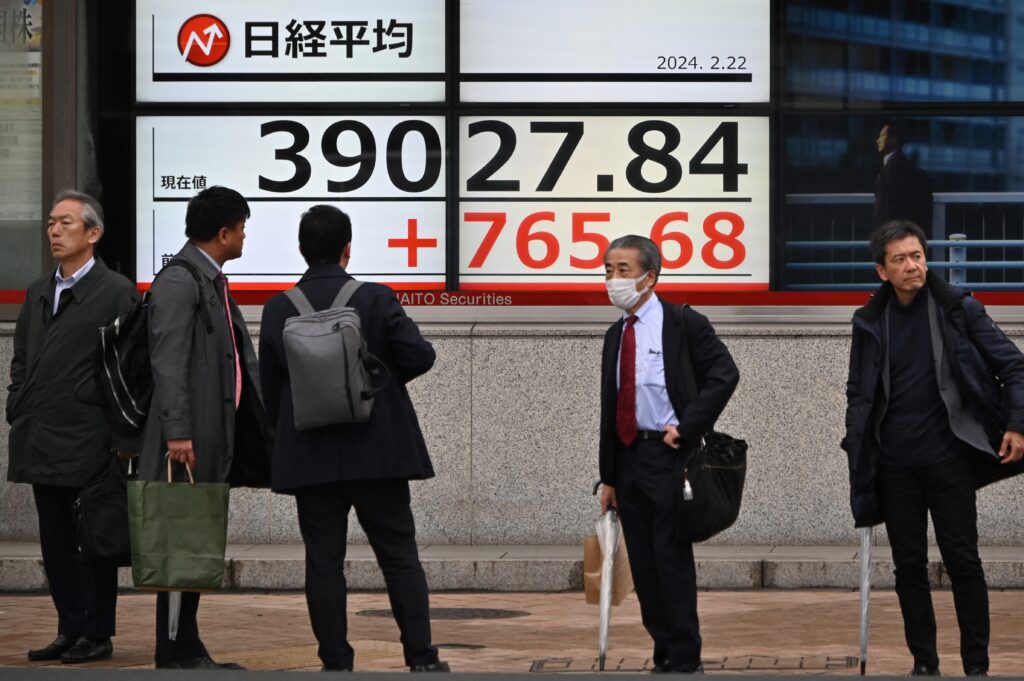
- ARAB NEWS
- 11 Jul 2025

TOKYO: With the Nikkei stock average surging to a record high Thursday, the Japanese government is aiming to ride on the stock market’s yearlong rally to facilitate further wage increases and revive the economy.
The key index’s surge is a rare bright spot for the administration of Prime Minister KISHIDA Fumio, amid no sign of improvement in the cabinet’s approval rating, with one senior official calling it “great news for economic revitalization.”
There are hopes that higher stocks prices will help realize the prime minister’s goal of achieving wage increases that outpace inflation.
The Nikkei 225 index finished at 39,098.68, topping the previous record marked more than 34 years ago at the height of the country’s speculation-driven bubble economy.
“The Japanese economy is starting to move,” Kishida told reporters the same day, after listing off his economic policies. “It’s encouraging and powerful that market players in Japan and abroad are appreciating our efforts.”
The prime minister said that his government’s corporate tax cuts aimed at promoting wage hikes, an income tax cut and the expansion of the Nippon Individual Savings Account, or NISA, tax-exemption program for small-lot investments in January will lead to improving people’s everyday lives.
Also on Thursday, Finance Minister SUZUKI Shunichi said that the government will “steadily deal with pending issues without being swayed by the level of stock prices,” pledging to work on improving people’s livelihoods by strengthening corporate profitability and achieving wages that do not lag behind inflation.
“If personal assets increase, consumption will increase,” a government official said regarding the expected effect of higher stock prices on wage hike efforts. “It’s better for companies to raise wages when stock prices are not low.”
“We hope this leads to wage rises instead of just dividends,” a senior official at the prime minister’s office said. “This is a once-in-a-lifetime opportunity.”
While some in the ruling Liberal Democratic Party have attributed the bull market to foreign investments capitalizing on the cheap yen, the government hopes to tout it as the result of the NISA expansion.
But it is unclear whether the market strength will buoy the Kishida government’s support rate. Approval remained low in public polls last week, even as the Nikkei neared the previous record high.
The situation stands in stark contrast to when the popularity of former Prime Minister Shinzo Abe’s administration was buoyed partly by bullish stocks.
The stock price surge “may lead to higher salaries, but it won’t be seen as a result of the administration,” an LDP source said.
Some in the ruling party predict that Kishida will dissolve the House of Representatives, the all-important lower chamber of Japan’s parliament, for a snap election if stock prices remain high.
“The prime minister is aiming for June, when the (implementation of) the fixed-amount tax cut and (the payment of) bonuses overlap,” a junior LDP member said.
“It’s strange that the approval rating remains low despite current stock prices,” a cabinet minister said.
But support for the cabinet looks unlikely to grow anytime soon, with a slush funds scandal linked to LDP factions casting a heavy shadow. One government official said that the prime minister should be “appreciated a bit more.”
JIJI Press